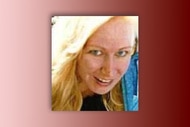Create a free profile to get unlimited access to exclusive videos, breaking news, sweepstakes, and more!
Who Is Julian Peribañez And What DID He Uncover About The Madeleine McCann Case?
Julian Peribañez relentlessly tracked down leads in the Madeleine McCann case, even infiltrating the seedy underworld of sex trafficking to try to find the missing 3-year-old.

When 3-year-old Madeleine McCann vanished from her bed in the middle of the night, one investigator was willing to stop at nothing to find her, going on high-speed car chases, leading covert operations, and even infiltrating the seedy, dark underworld of child trafficking in the months after her disappearance to try to uncover the truth.
Julian Peribañez was consumed with the case, even answering calls to a tip line on his own cell phone at all hours of the night to gain new clues about what may have happened to the missing 3-year-old, who was thought to have been abducted in May 2007 while on a family vacation in Praia da Luz, Portugal.
The investigator, who had grown up watching police movies and James Bond flicks, worked for Metodo 3, a private investigation firm hired by the McCann family and wealthy benefactor Brian Kennedy to explore avenues that weren’t being considered by police in Portugal. In Netflix's new docu-series "The Disappearance of Madeleine McCann," which delves into the infamous case, Peribañez's search efforts are examined again.
“I said ‘Go for it. Delve into what you know you can delve into, below the surface of what’s going on, and the criminal factions in that area in Portugal, and Spain and Morocco. Find out what you possibly can’ and they went about it, I have to say, with great gusto,” Kennedy said of hiring Metodo 3 in 2007 in “The Disappearance of Madeleine McCann.”
After meeting Madeleine’s parents, Kate and Gerry McCann, Peribañez said the mission became “personal” and he set off to Portugal where he spent eight months on the ground working the case.
“Julian was someone that was very thorough and very energetic, and he was unforgiving with certain things, of pursuing people,” Patrick Kennedy, Brian’s son, said. “He was the type that would go all out.”
Brian had asked Patrick to help manage the investigation, so Patrick and Peribañez worked together on occasion in the case.
Peribañez did all sorts of things while in Portugal. Investigators tracked leads from potential witnesses, worked with sketch artists to create images to release to the public, searched an abandoned property where the young girl was rumored to be, and tailed possible suspects.
“We found names and addresses of pedophiles in the Praia de Luz area. We’d follow them. We weren’t allowed to do that, we needed permission of the police to do that, but quite frankly I didn’t care,” Patrick said.
Peribañez said his status as a private investigator gave him “more freedom to investigate than being a cop.”
For example, when Robert Murat, a British-Portuguese real estate agent who seemed overly eager to help in the case, emerged as a potential suspect, investigators put a tracker on his car to try to see where he went and who he might meet up with up (Murat later discovered the device).
Peribañez also followed Sergey Malinka, a business associate of Murat's who was also considered a suspect in the case, and even offered him up to “half a million or something” to talk about the case after being instructed by his boss to suggest the money.
Malinka denied knowing anything about the case and refused the money.
There was high media scrutiny about both men at the time; however, after looking closely at both suspects Peribañez said it seemed unlikely either were involved.
But Peribañez didn't stop his investigation here. He was intrigued by another similar case in Portugal in 2004, which involved the disappearance of a local girl named Joana Cipriano. Her mother said the 8-year-old had left her home to go to the store in the Portuguese village of Figueira and never returned.
Police later claimed the girl was killed by her mother and uncle after she walked in on them having sex. Police said they chopped her up and placed her body parts in a small refrigerator at the home before throwing her remains to the pigs. Her mother, Leonor Cipriano, and her brother, João Cipriano were both sentenced to jail for the crime, ABC News reported in 2007.
Watch Out Of Sight: The Disappearance Of Madeleine McCann Friday, March 29 at 9/8c, only on Oxygen
But the documentary focused on a series of photographs seemingly showing Leonor battered and bruised, suggesting she may have been coerced into giving the confession.
Peribañez later tracked down João's former cellmate and recorded an interview with the unnamed man, who claimed the girl was alive but had been sold to a foreign family.
“I know that he received quite a lot of money,” the cellmate can be heard saying in the video played in the documentary. He also claimed to have seen a photo of the girl after she disappeared. In the image, he said, she appeared to be in a room that was “not from somewhere poor.”
The documentary speculated that McCann may have met a similar fate and could have been the victim of sex trafficking.
“This was the biggest moment for me on the case, because it really gave me proof that there was an organization working in Portugal and it also gave us a hope of trying to find that network. And if we could find the network, we could find Madeleine,” Peribañez said.
Typically, he said, sex trafficking victims are from lower class backgrounds, suggesting the value for Madeleine could have been significant and possibly worth the risk to the abductor.
“My idea is that the value that Madeleine had was really high because if they took her it was because they were going to get a lot of money,” he said in the documentary, adding that he believes she could still be alive.
Peribañez began to infiltrate the dark web into secretive trafficking and child pornography channels in the hopes of learning something about McCann’s fate.
These dark web channels aren’t indexed, making it difficult to track users and a nefarious way for criminals to communicate with one another.
“There’s a tsunami of indecent images online. Current estimates are, in the UK alone, that 100,00 IP addresses, computer IP addresses can be downloading incident images of children at any given moment in time,” Jim Gamble, a former senior police officer with the CEOP, said in the docu-series.
To gain access to the channels, Peribañez had to pretend to be of a similar mindset and comment on how “good” the images were. The work brought him to the “darkest places” of humanity, he said, and forced him to see images he’ll have to carry with him for the rest of his life.
“I’ve done thousands of cases, the Madeleine case, I’ve seen the worst things a human being can see,” he said.
But as Peribañez was delving further into the sex trafficking underworld, his boss at Metodo 3 made comments to the media that ultimately led the family to fire the firm and hire another investigative firm to continue the work.
Francisco Marco, the director general of Metodo 3, claimed in 2007 that the agency knew who had taken Madeleine and that they hoped to have the little girl home by Christmas, according to the Evening Standard.
Peribañez said in the documentary that the claim was “unbelievable” and that they didn’t have any clue at the time who may have taken the young girl. The family soon decided not to work with the firm any longer.
“I was ashamed of course,” the private investigator said. “I was shocked and ashamed.”
Although Metodo 3 would no longer be working on the McCann case, Peribañez’ efforts to infiltrate the sex trafficking world would lead to multiple arrests.
The private investigator handed the research he’d done to Spain’s Policia Nacional, which launched an investigation dubbed “Lolita P-mix.”
As a result of the investigation, 13 people were arrested, according to Juan Carlos Ruiloba, the former head of the crime unit Policia Nacional.
“That’s the best thing that came from this case,” Peribañez said. “The thing that I am most proud of.”
Years after the McCann investigation, Marco, Peribañez and two other detectives would be arrested as part of a political spy scandal that rocked Spain, according to El Pais. The agency was accused of recording conversations between the head of the Popular Party in Catalonia, Alicia Sánchez-Camacho, and an ex-girlfriend of the son of the region’s ex-premier about alleged money laundering activities.
Peribañez and suspect Alex Borrequero allegedly told investigators they had recorded the conversation on the orders of their boss.



























